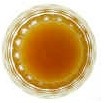Orange juice fungicide row highlights flaws in US pesticide regime, says expert

Benjamin England, founder of legal practice Benjamin L. England & Associates and consultancy FDAImports.com, was speaking to FoodNavigator-USA following the FDA’s decision to test all imported shipments of orange juice/concentrate for carbendazim, a fungicide also called MBC.
While the FDA has made it clear that low levels of carbendazim (a mold inhibitor approved for use in several countries) are not a safety risk, it is blocking imports of orange juice testing positive for the substance as it has not been approved by the EPA for use as a fungicide on oranges in the US and there is no established tolerance level for it in orange juice in the US.
The move came as Coca-Cola alerted the FDA after detecting the fungicide in some imported Brazilian juice samples in December.
Compliance management, not risk management?
Said England: “In my mind it’s another case of the government doing compliance management instead of risk management. It could have stopped and tested products, alerted the industry to its concerns and then said it would take action on the next shipments. It didn’t have to create a big scare.”
Meanwhile, few consumers probably realized that another pesticide, thiophanate methyl or TPM, that is related to - and degrades down to - MBC is permitted in other fruits at significantly higher levels, he argued.
“How does FDA test for the presence of TPM? By testing for MBC, the same pesticide that is causing all the imported orange juice containers to stop at US ports of entry.”
He added: “If FDA were worried about the safety of MBC, it would also have to stop grape juice with an EPA tolerance of 5ppm and cherry juice - the heavy-hitter, with an EPA tolerance at a monstrous 20 ppm. Grape juice is used as the base juice for most fruit juices sold in the US and it has a tolerance for TPM, which is measured by testing for, you guessed it, carbendazim.
“While FDA is busy locking up the American orange juice supply, US consumers will have to turn to other juices for their kids, like apple and grape juices. Apparently the fact that MBC is permitted at much (much) higher concentrations in those other juice products is lost on FDA.”
FDA: Testing, testing…
Meanwhile, the net result of FDA’s actions will be to “greatly increase the cost of orange juice, burden the American public with a gratuitous pesticide scare and unnecessarily bottleneck imports of orange juice and concentrates into the US”, he claimed.
The FDA told FoodNavigator-USA on Friday: “If the shipment tests free of detectable levels of carbendazim, it will be allowed to enter the country. Otherwise it will be turned away or destroyed. Three samples FDA has tested have preliminary negative results [with 28 pending analysis].”
The 10 ppbn testing threshold “has to do with the limits of our testing ability”, it said. “We can only reliably measure levels down to 10 ppbn.”
Why is this an issue now?
A Coca-Cola spokesman told FoodNavigator-USA that the FDA action had not scuppered availability of its Minute Maid juices, adding: “Our procurement plans are flexible and can adjust. Right now, we source a significant amount of our orange juice for the US from Florida.”
As for testing, he added: “We test all our ingredients to ensure they meet our safety and quality standards. “
But he declined to say whether Coke has been routinely testing specifically for carbendazim in juice imports or whether its December test was a new departure.
Carbendazin widely used globally
The Juice Association told FoodNavigator-USA: “While carbendazim is not registered for use in the US on oranges, it is widely used globally.”
However, it would not comment on why the Coke test has only recently brought the issue to light given that Brazilian orange growers have been using carbendazim – and supplying juice to US importers – for some years.
In a letter to the association sent on January 9, the FDA said industry reports suggested that carbendazim was present in orange juice products from the 2011 crop from Brazil, where it is used legally under Brazilian law to combat black spot.
FDA to industry: Tell your suppliers not to use it…
It added: “The EPA has conducted a preliminary risk assessment …[and] has concluded that consumption of orange juice with carbendazim at the low levels that have been reported does not raise safety concerns.
“FDA does not intend to take action to remove from domestic commerce orange juice containing the reported low levels of carbendazim. FDA is, however, conducting its own testing of orange juice for carbendazim, and, if the agency identifies orange juice with carbendazim at levels that present a public health risk, it will alert the public and take the necessary action to ensure that the product is removed from the market.”
The FDA has asked juice firms to outline their plans for ensuring that suppliers stop using the pesticide in oranges used in juice products intended for the US market.










